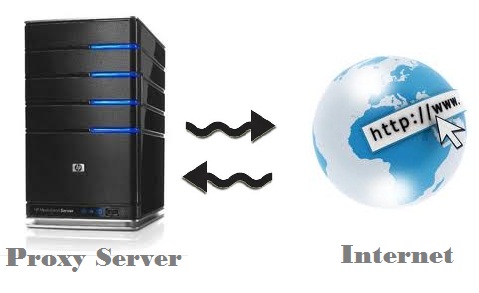During the modern digital age, where every interaction and online activity is tracked, issues of confidentiality and safety have become increasingly urgent than ever. With the rise of online surveillance, individuals and businesses alike are on a quest to safeguard their personal data and preserve their privacy. One of the most powerful tools in this battle is the proxy server. By functioning as an agent between users and the internet, proxy servers can to conceal browsing activities, enhance protection, and bypass restrictive measures.
Understanding how proxy servers function and their various types can enable users to make informed decisions about their online activities. Whether it’s accessing geo-restricted material, boosting work efficiency, or protecting sensitive data from prying eyes, proxy servers offer a range of advantages. As we explore deeper into the realm of proxy servers, we will explore their benefits, the differences between proxies and VPNs, and the precautions users should take to ensure they are employing these tools effectively and securely. In https://output.jsbin.com/kukariyaja/ where privacy is progressively threatened, knowledge of how to utilize proxy servers can be a game-changer.
Understanding Proxy Servers in addition to Its Functionality
Proxy servers function as go-betweens that connect a user's device with the internet, enabling users to forward requests and obtain data while maintaining a sense of anonymity. As soon as a user attaches to a proxy server, their internet traffic is channeled via the server, that then transmits the requests onward to other servers. This procedure conceals the user's IP address, offering a layer of privacy and helping to protect their identity online.
The main functionality of a proxy server lies in its ability to filter and control internet traffic. It is able to prevent harmful content, cache data for faster access, and also shrink data to improve loading times. Additionally, proxies can apply security measures, which allows organizations to supervise employee internet usage and secure sensitive data from potential threats. Extra resources makes proxy servers key tools for both individual users plus businesses.
There are various types of proxy servers designed for specific tasks, such as proxy servers for HTTP for web browsing, SOCKS servers for handling different types of internet traffic, plus transparent proxies that do not alter requests. All types serves different purposes, catering to the unique needs of users, such as speeding up internet access, overcoming geo-restrictions, or improving online security. Understanding these differences is essential for choosing the best solution for successful online privacy plus security.
Benefits and Risks of Using Proxy Servers

Proxy servers offer several important advantages that contribute to improved online confidentiality and safety. By acting as middlemen between users and the internet, they help mask the user's IP address, making it challenging for sites and online services to monitor individual browsing habits. This secrecy can be particularly helpful for users seeking to protect their personal information from monitoring or data collection. Moreover, proxy servers can help users reach geo-restricted content by routing traffic through servers in different locations, providing a way to overcome regional restrictions and experience a broader variety of online content.
Despite these benefits, there are also major concerns associated with using proxy servers, especially free proxies. Many free proxy services can compromise user security by logging browsing activities or injecting malicious ads, possibly leading to data breaches or identity theft. This is why it is essential for users to carefully select reliable and credible proxy services, guaranteeing that their online activities stay private and safe. Additionally, some proxies do not encrypt data, leaving users vulnerable to being captured by hackers or cybercriminals on unprotected networks.
Ultimately, while these services can provide enhanced anonymity and access to limited content, users must consider these benefits against the potential risks. It is essential to take into account factors like the type of proxy service, its dependability, and safety measures before using a proxy for online activities. Making informed decisions can help users enhance the advantages of these services while minimizing the potential hazards associated with their use.
#### Proxying Server in Online Anonymity & Safety
Proxying servers serve a key function in enhancing digital anonymity by functioning as intermediaries between users and the web. Whenever a user connects through a proxy, their real IP address is masked, making it significantly more difficult for sites and internet services to monitor their activities. This level of anonymity is crucial for users who are concerned about online surveillance and data collection by companies and state. By concealing their identity, users can navigate the internet without the worry of being monitored or having their information collected.
In parallel to providing anonymity, proxy server also boost online security. They can block harmful content and restrict access to possibly hazardous sites, acting as a first line of protection against online threats. This is particularly beneficial for companies that need to safeguard sensitive information and ensure the safety of their staff while browsing. Moreover, when paired with encryption technologies, proxy servers can enhance the safety of information transmission, making it difficult for hackers to gain access to confidential data.
While proxying server offer significant benefits for privacy and safety, users must also be cognizant of the potential risks, particularly when utilizing complimentary proxy services. Numerous complimentary options may not provide sufficient security measures, and certain may log individual behavior or inject advertisements into browsing experiences. It is crucial to select reputable proxy services to ensure secure and safe online sessions. By knowing both the benefits and dangers associated with proxying server, users can more effectively maneuver the challenges of digital privacy and security.
